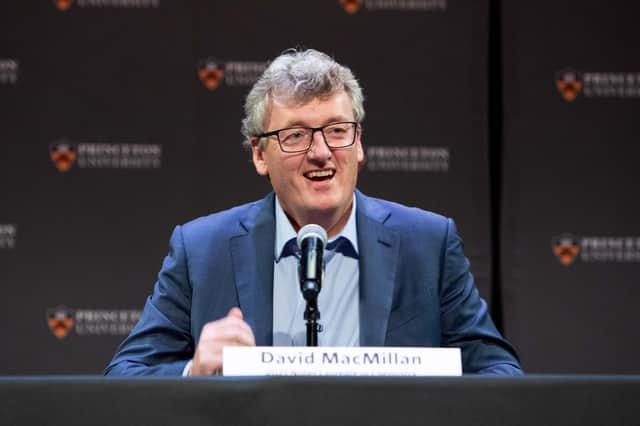New Stevenston scientist wins Nobel Prize


David MacMillan, the James S. McDonnell Distinguished University Professor of Chemistry at Princeton University, shares the award with German scientist Benjamin List.
In its announcement the Royal Swedish Academy of Sciences noted: “Building molecules is a difficult art.
Advertisement
Hide AdAdvertisement
Hide Ad"Benjamin List and David MacMillan are awarded the Nobel Prize in chemistry 2021 for their development of a precise new tool for molecular construction: organocatalysis.
"This has had a great impact on pharmaceutical research, and has made chemistry greener.”
The prize of 10m Swedish kroner, or about $1.14 million, is split between the two laureates.
University president Christopher L Eisgruber said: “David is a brilliant chemist whose transformative insights and accomplishments have enhanced the power of organic chemistry to benefit human health and address other practical problems.
Advertisement
Hide AdAdvertisement
Hide Ad"He is also a faculty leader who during his time at Princeton has worked with colleagues to build this University’s Department of Chemistry into one of the world’s best. All of us at Princeton are thrilled to celebrate this well-deserved honor.”
David attended New Stevenston Primary and Bellshill Academy before graduating from the University of Glasgow in 1989 and gaining his his Ph.D. from the University of California-Irvine in 1996.
His early career was at the University of California and Caltech, before moving to Princeton in 2006.
David said: “I am shocked and stunned and overjoyed. It was funny because I got some texts from people in Sweden really early in the morning, and I thought they were pranking me so I went back to sleep.
Advertisement
Hide AdAdvertisement
Hide Ad“What we care about is trying to invent chemistry that has an impact on society and can do some good, and I am thrilled to have a part in that.
“Organocatalysis was a pretty simple idea that really sparked a lot of different research, and the part we’re just so proud of is that you don’t have to have huge amounts of equipment and huge amounts of money to do fine things in chemistry."